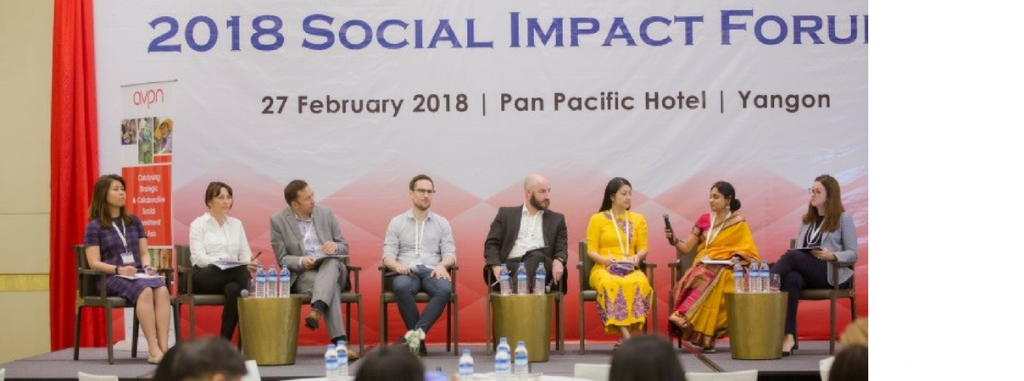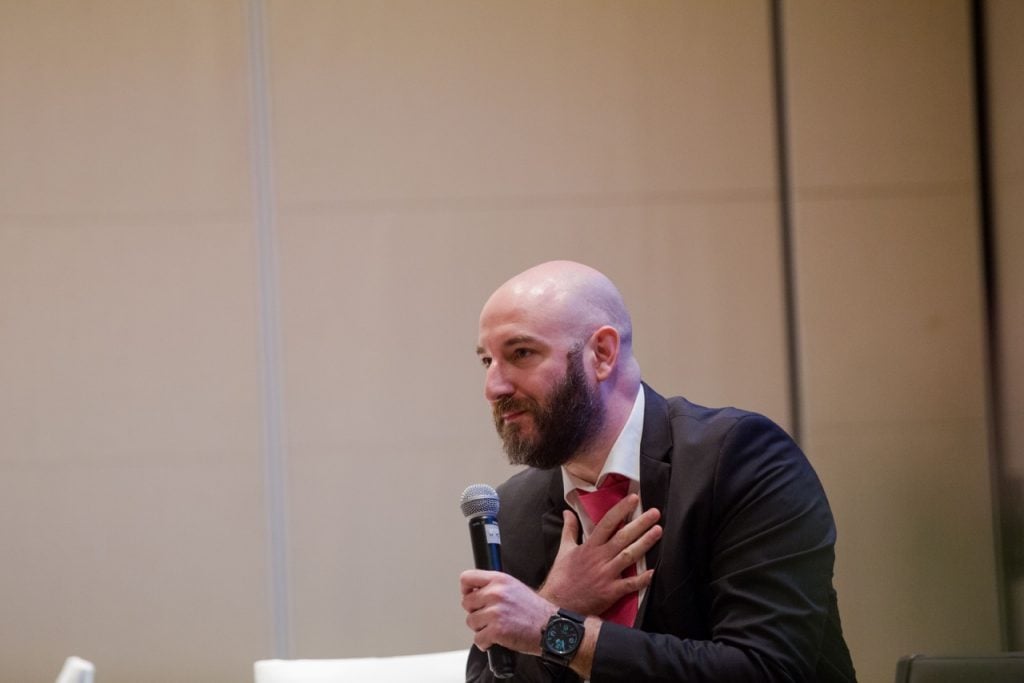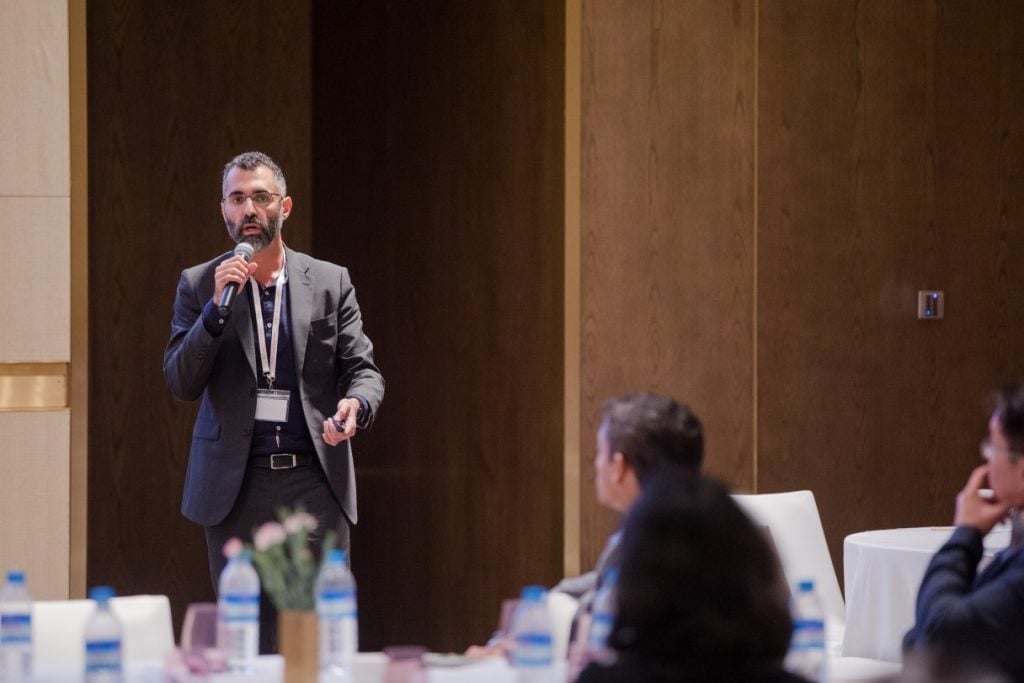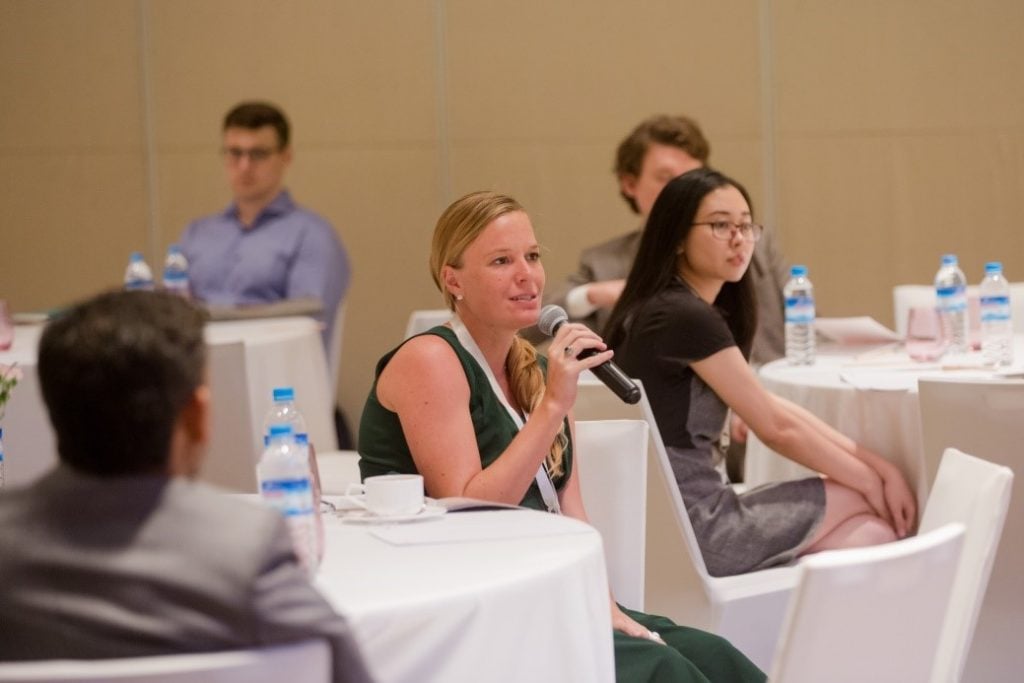3 minute read
Summary Points:
- The role of CSR in business has shifted beyond being just a practice protecting the company reputation to an approach for creating value sustainable for all stakeholders
- Strategic intention and top management support is key to developing an effective and business driven CSR framework
- There is an increasing need for businesses to involve CSR in their practices to fulfil stakeholder needs
At the AVPN Myanmar Social Impact Forum, themed “Accelerating Social Impact”, a group of social investors and key ecosystem players shared new trends, opportunities, and challenges within the evolving Corporate Social Responsibility (CSR) movement.
Moderating the ‘Workshop for Corporates’, Nicolas Delange of Yever explored strategies for corporate foundations and CSR departments were evolving to create more value with speakers from Sattva Consulting, Dalberg, City Mart, Telenor Myanmar, and Total Myanmar.

Nicolas Delange speaking at the ‘Workshop for Corporates’
What CSR Means – Not a Practice, but a Culture
The general consensus from the panel was that there has been a promising shift in mind-sets toward CSR practices. Through the lens of the food industry in Myanmar, Htet Htet Khine, Sustainability Manager of City Mart shared how traditional CSR activities used to be primarily characterized by donations and charity but there has since been a shift in priority to food safety, and responsible production. These practices not only support local produce, but also conserve energy,
Similarly, Swe Swe Win from Total Myanmar shared that CSR is about cultivating an ethical business environment. Total has progressed from providing basic infrastructure and healthcare in villages around Yadana Platform’s gas pipeline to empowering the community through capacity building programs. By developing a culture of compliance and safeguarding HSE standards, companies stand to gain the trust, respect and social license to operate with stakeholders.
In the same way, Telenor address health and safety challenges by ensuring their supply chains abide by responsible business standards through a series of awareness building, trainings sessions and inspections.
Developing Effective CSR Frameworks – Strategic Intentionality is Key
Corporates have been increasingly conscious of their positive social impact – impact not only implemented by credible and reliable experts on the ground but also evaluated through regular assessments. In India, the law requirements are not sufficient to ensure that companies design and implement relevant and impacting CSR strategies. However, an effective CSR program must find the intersection between social need, organization expertise, and implemented value, says Aarti Mohan, Co-Founder of Sattva Consulting.
Kunal Walia, Associate Partner at Dalberg emphasised Aarti’s point with a few proven strategies including the need to ‘invest in design’, ’sufficient flexibility in programs to evaluate and redesign them regularly’, and ‘partnerships’.

Sharing by Kunal Walia from Dalberg
Sustainability in 2025
Upon reflecting on the Myanmar market, all panellists agree it will be very mature by 2025; ‘traditional sustainability’ will make way from ‘all-inclusive sustainability’ – a concept that they are confident will be well-embedded in society.
With society’s increasing social consciousness, businesses have to integrate CSR in their business models, not only to fulfil stakeholder needs, but also to increase sales and value creation. As such, companies have to engage with stakeholders to understand their expectations in order to transform the way they are creating value.
Missed the Forum? View the full list of sessions below, or download the programme booklet here!

Discussion with the audience
Morning Break Out Sessions
Workshop for Corporate Foundations & CSR Departments
Panel Discussion on Impact Investing in Emerging Markets
Discussion on Policy-Making for Social Entrepreneurship and Impact Investing
Dialogue on the role of Intermediaries in building up Social Purpose Organisations
Afternoon Break Out Sessions
Funding for Impact in Micro-Finance and Rural Development
Collaborations for Inclusive Energy Solutions
Collective Impact in Education – Leapfrogging Myanmar Education with Learnings from the Region
Gender Equality & Inclusiveness in Companies – The Myanmar Business Coalition





















